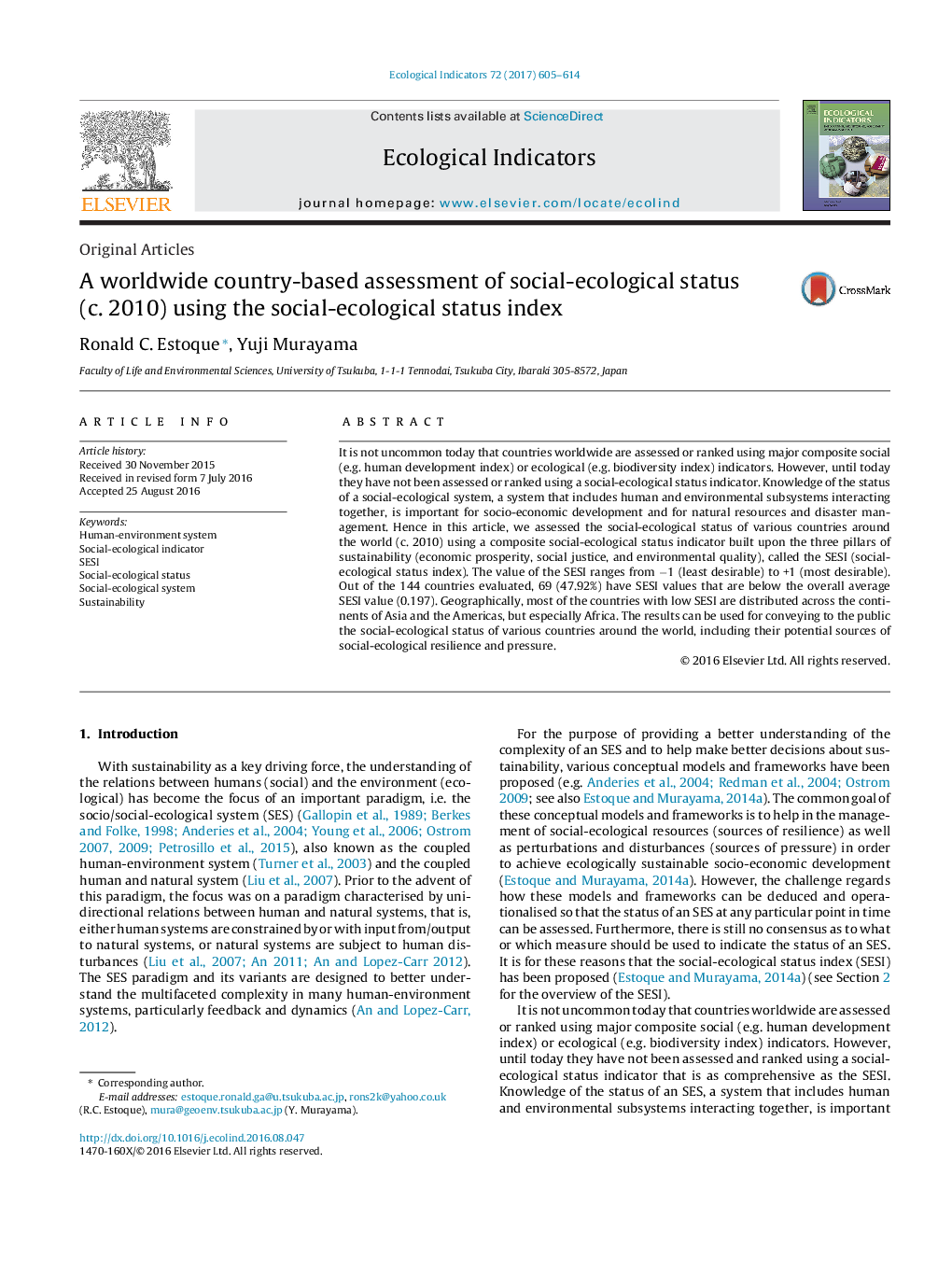| Article ID | Journal | Published Year | Pages | File Type |
|---|---|---|---|---|
| 6292837 | Ecological Indicators | 2017 | 10 Pages |
Abstract
It is not uncommon today that countries worldwide are assessed or ranked using major composite social (e.g. human development index) or ecological (e.g. biodiversity index) indicators. However, until today they have not been assessed or ranked using a social-ecological status indicator. Knowledge of the status of a social-ecological system, a system that includes human and environmental subsystems interacting together, is important for socio-economic development and for natural resources and disaster management. Hence in this article, we assessed the social-ecological status of various countries around the world (c. 2010) using a composite social-ecological status indicator built upon the three pillars of sustainability (economic prosperity, social justice, and environmental quality), called the SESI (social-ecological status index). The value of the SESI ranges from â1 (least desirable) to +1 (most desirable). Out of the 144 countries evaluated, 69 (47.92%) have SESI values that are below the overall average SESI value (0.197). Geographically, most of the countries with low SESI are distributed across the continents of Asia and the Americas, but especially Africa. The results can be used for conveying to the public the social-ecological status of various countries around the world, including their potential sources of social-ecological resilience and pressure.
Related Topics
Life Sciences
Agricultural and Biological Sciences
Ecology, Evolution, Behavior and Systematics
Authors
Ronald C. Estoque, Yuji Murayama,
